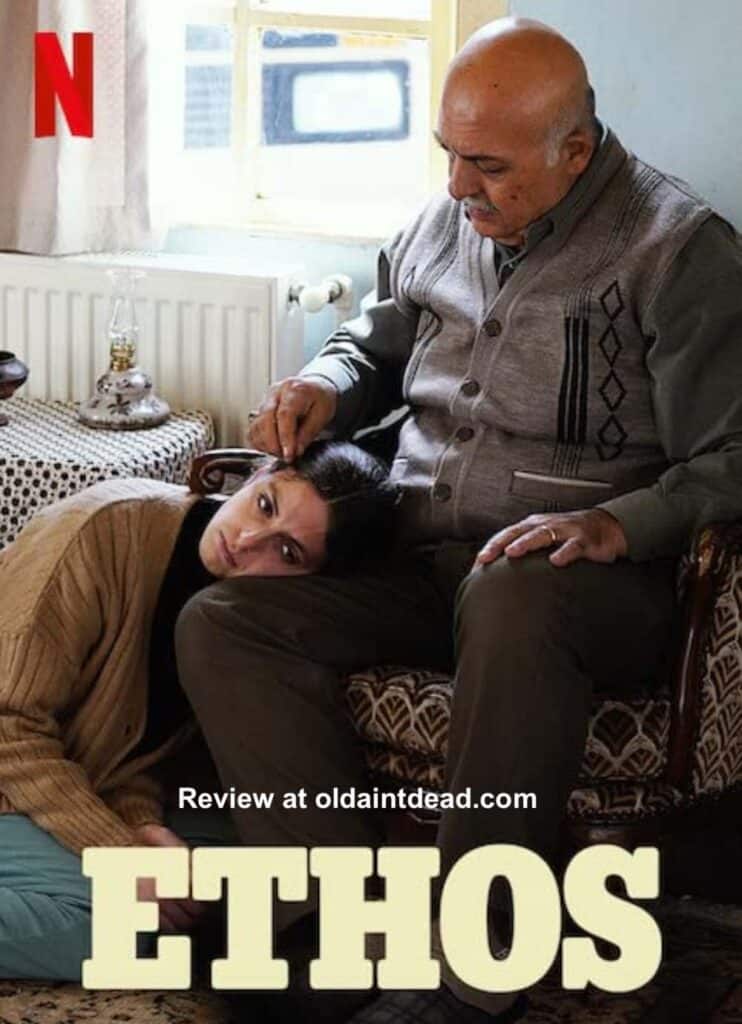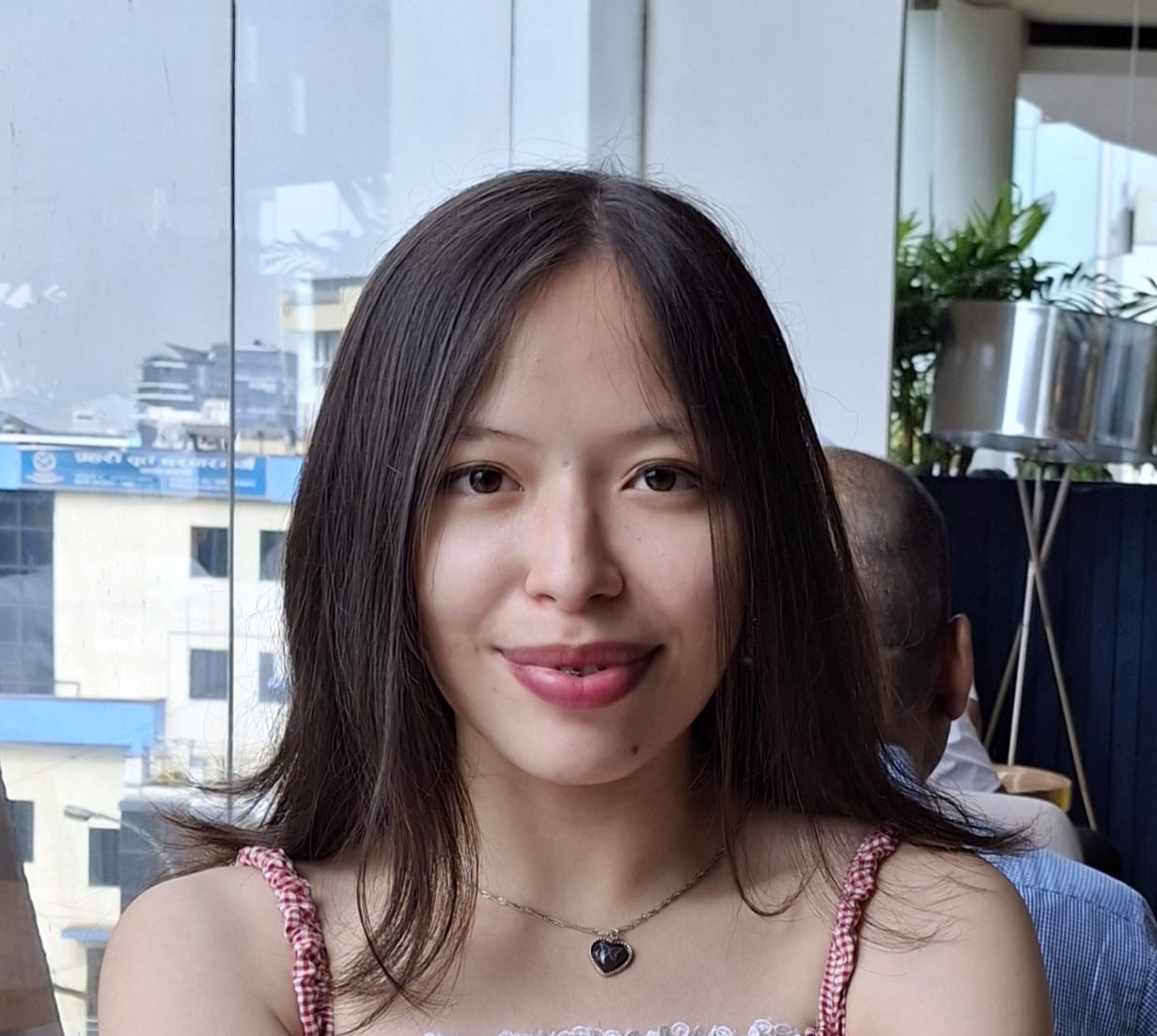Culture & Lifestyle
A simple story about people and their not-so-simple lives
‘Ethos’ explores the intertwined lives of imperfect characters as they navigate confrontations, suppressed emotions and societal expectations.
Manushree Mahat
In Berken Oya’s ‘Ethos’, the psychiatrist’s office is a constant. The eight-episode series begins with Meryem, the protagonist, in her first appointment with a psychiatrist. Meryem is nervous, chatty, defensive and curious as she comes to terms with her new confrontational reality. Every episode of ‘Ethos’ thereon follows a similar pattern of confrontations with characters who are all troubled and lonely in some way, including Meryem’s own psychiatrist, who also has a therapist.
‘Ethos’ is a simple story—in simple words, it’s a story about imperfect people and their imperfect lives and how they come to live with these imperfections without succumbing to them. It starts with Meryem and her psychologically triggered fainting spells, then moves to Peri, Ruhiye, Gulbin, Yasin, Sinnan and Hayrunnisa, each dealing with suppressed feelings and struggles.
Peri’s office is sparse and pristine, reflecting her own demeanour. She and Meryem engage in sombre conversations here. In the series’ opening, we learn that Meryem has been experiencing fainting spells for a while, and physical causes have been ruled out. Confused but curious, Meryem grapples with the idea of seeking psychiatric treatment, and her religious values play a significant role in her decision to continue. Oyku Karayel’s portrayal of Meryem is true to her sensitivities and innocence, evident in her wide, awestruck eyes and hidden smirks that reveal her intelligence.
There’s no immediate chemistry between the no-nonsense Peri and the defensive Meryem. Meryem, a devout Muslim, clashes with Peri, who harbours prejudices against religious women, staunchly disapproving and stating, “There are more women with scarves than without these days,” to her tired therapist, Gulbin.
The portrayal of therapists as problem-solving messiahs is a common theme in cinema and TV series these days, so Peri’s quiet rejection of Meryem is a refreshing departure from this trend. Peri isn’t just a therapist; she’s one of the imperfect characters who defies stereotypes from the series’ outset. Gulbin, Peri’s therapist, adds to this depiction by revealing her own complexities. She vents her frustrations about Peri to Sinan, her occasional partner and Meryem’s employer.
Sinan, with his aversion to commitment, unexpectedly connects Meryem, Peri, Gulbin and Melisa in the story. It’s ironic that a character with deep-seated commitment issues becomes a linchpin for crucial relationships in the series. In the first episode, Meryem’s difficulty opening up about Sinan hints at her unconventional crush on her employer, someone whose values sharply contrast with her upbringing. This raises questions about Meryem’s desire for freedom in her busy life: Does she seek a life beyond the values she grew up with? Can her religious values coexist with her need for psychological relief? It becomes clear that her Muslim upbringing doesn’t hinder her yearning for a better life.
Here, Hodja, a respected Sufi teacher, becomes a significant link between Meryem, her brother Yasin, Yasin’s wife Ruhiye, and Hodja’s daughter Hayrunnisa. This connection goes beyond chance encounters—Ruhiye mainly interacts with Meryem and Yasin in the story. In ‘Ethos’, Berken Oya delves into the clash of conflicting values, prompting questions about whether individuals from diverse backgrounds can find common ground. Hodja, a man of religion, expresses concern about Meryem seeing a psychiatrist. However, in an act of rebellion, Meryem, who enjoyed Peri’s session, lies to Hodja about her visit.
‘Ethos’ breaks traditions and stereotypes again, as Hodja later reveals he has little objection to Meryem seeking psychiatric help if it benefits her. Hodja isn’t merely a religious figure imposing beliefs; he’s a complex character, a gentle soul, a loving and grieving husband, and a supportive father to Hayrunnisa. His story concludes on a fulfilling note when he accepts Hayrunnisa’s decision to leave their house without her headscarf.
Oya’s writing demonstrates sensitivity to both religious and non-religious characters without categorising them as strictly good or bad. The characters have agency and make choices regarding their religious values, impacting and not impacting their personal lives. Meryem, the protagonist, finds peace with her religion, while Hayrunnisa, timid and scared, grapples with hers. Some characters clash due to their values, like Gulbin and her sister Gulan. Gulan, abrasive and aggressive, shames Gulbin for abandoning God, yet the story unfolds with more depth than these differences suggest.
Speaking of intense characters, there’s Yasin, Meryem’s brother, who, for much of the series, acts as a dominating figure in his life and the lives of those around him, especially his wife, Ruhiye. Right from the start, Yasin is a ‘tyrant’, as Peri labels him. He directs his anger and frustrations at Meryem, gives orders at home, criticises her for everything, and even compels her to halt her therapy. Yasin sees masculinity as synonymous with aggression, but, in line with Oya’s character development, that’s not the full extent of his personality. His character takes a turn when he displays vulnerability, albeit veiled in traditional masculine anger. In a memorable outburst, he confesses his hidden agony, saying, “Did I cry, Ruhiye? When the business went down, when you changed, and when my son wouldn't talk, I didn’t cry, Ruhiye.”
Crying becomes a central theme in ‘Ethos’, where characters release years-old insecurities, anger, pain and trauma through their tears. Sinan, emotionally restrained for most of the series, breaks down as he grapples with the loneliness hidden in his lavish house. Hodja, realising profound loneliness after his wife’s passing, sheds tears alongside his daughter in mourning. Yasin, carrying the patriarchal burden of being the ‘man of the family’, breaks down in contradiction to his ‘did I cry’ speech, realising that his family might finally heal.
The actors, portraying roles filled with deep-seated sadness and long-suppressed pain, bring a physically emotive and agonising quality to their characters, making them feel incredibly real, though at times challenging to watch.
Funda Eryigit, who portrays Ruhiye, skillfully embodies the worn-out state of the character with a subdued and defeated demeanour. Throughout most of the series, Ruhiye battles severe depression—struggling to even leave her room, with words escaping her lips sparingly. This becomes a source of conflict between her and Yasin, who believes that shouting at her can snap her out of years of suppressed trauma.
Uncomfortable conversations, shouting, and screaming among close ones are recurring elements in ‘Ethos’, showcasing raw displays of anger with unfiltered dialogues and actors in their most distressed states.
The scenography and cinematography employ simple settings to create an overall calm atmosphere, placing the characters and their emotions at the forefront. Most scenes unfold in the characters’ natural environments—their homes. The compact rooms in Meryem’s place, the spacious ceilings and polished furniture in Sinan’s house, and the plain offices of Peri and Gulbin contribute to the realism of the stories, emphasizing the significant gaps in their sociocultural backgrounds.
The series also features moments with Meryem strolling and navigating the city in wide-angle shots, capturing the myriad of tiny people populating the streets, houses, stops and markets.
‘Ethos’ isn’t flawless, of course. Some storylines could have delved deeper into the sensitive topics they introduced. Take Ruhiye, for example, who grapples with the aftermath of her traumatic experience. After being entranced by her past for around six to seven episodes, she suddenly becomes more lively following a confrontation with her assailant near the end. Even though it’s mentioned that Ruhiye has been depressed for about three years, it might have enhanced the overall story if she, like Meryem, had someone to confide in.
The same could be said for Melisa, who appears at the beginning, makes brief appearances throughout, and gradually loses significance towards the end. It’s understandable if her character slipped your mind amidst the gripping dilemmas faced by the other characters. Despite the actor’s solid portrayal—she is quite charming and memorable on screen—Melisa had the potential to contribute more to the story, but unfortunately, she didn’t.
‘Ethos’ is a straightforward tale about simple lives, presented and captured in a way that compels you to keep watching for its beautiful simplicity.

Ethos
Director: Berken Oya
Starring: Oyku Keryel, Fatih Artman, Funda Eryigit, Defne Kayalar, Settar Tanriogen, Tulin Ozen, Alican Yucesoy, Bige Onal
Episodes: 8
Available on: Netflix




 9.83°C Kathmandu
9.83°C Kathmandu

.jpg&w=200&height=120)













